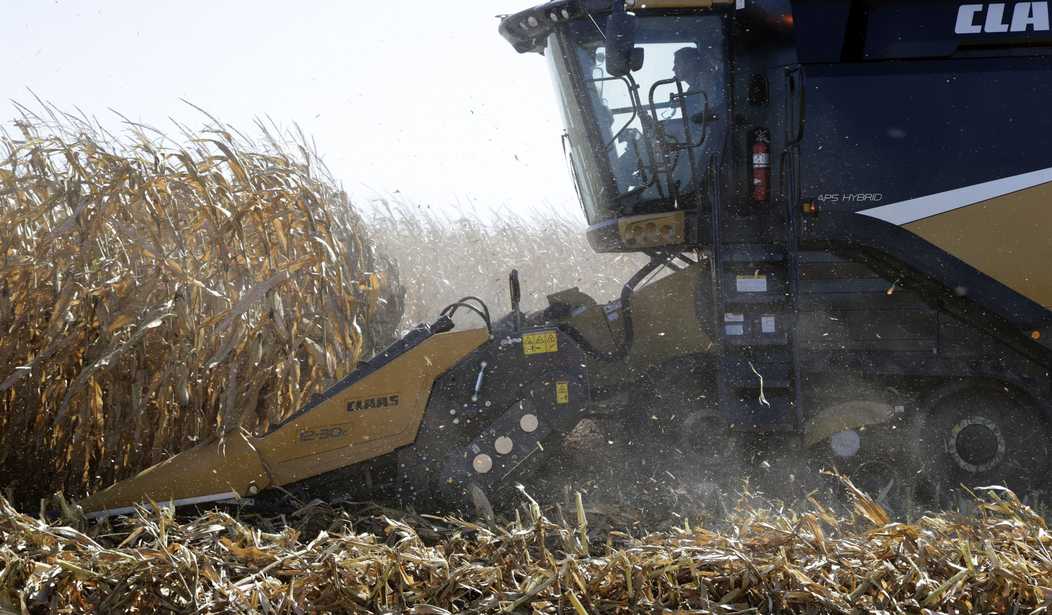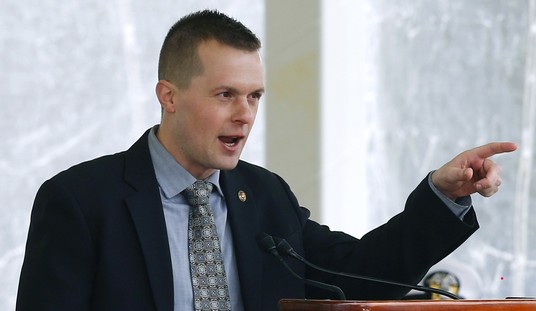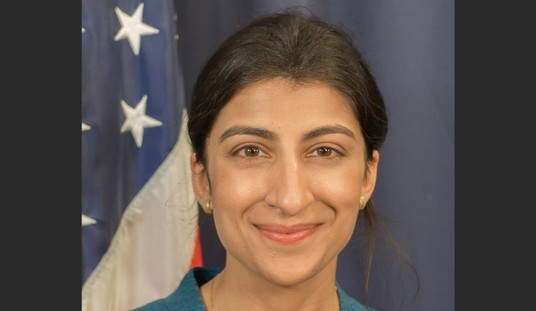Some farmers, farm lobbyists, and climate alarmists in the media are decrying President-elect Donald Trump’s nomination of Brooke Rollins to become secretary of the U.S. Department of Agriculture (DOA).
For example, the Bulletin of Atomic Scientists reposted an article by Inside Climate News titled, “US farms are being battered by climate change. Trump wants to put a climate denier in charge of the USDA,” in which Georgina Gustin warns that Rollins may reduce federal largesse for agricultural climate programs, thereby reducing money farmers have come to expect.
Rollins has both a law degree and a degree in agricultural development and served as the director of the Domestic Policy Council during Trump’s first term, making her well qualified to run the DOA. Rollins knows both the challenges facing farmers as well as the ins and outs of the regulations and laws governing agriculture policy.
Climate alarmists and any farmers who have joined their crusade against modernity built on fossil fuels are right to be concerned. Rather than being an unknown, as Inside Climate News implies, Rollins’ views on climate change and climate policy are well known. She is a climate realist. Rollins has previously spoken at The Heartland Institute’s America First Energy Conference, and supported withdrawing from the Paris Climate Agreement and ending the Obama administration’s disastrous Clean Power Plan.
Rollins is well aware that data and research clearly demonstrate, contrary to false claims made in Inside Climate News’ report, that weather hasn’t become more extreme, and farmers haven’t faced worsening planting, growing, or harvesting conditions over the past few decades.
During the past 30 years, from 1993 to 2022 (the last year with available data), the UN Food and Agriculture Organization (FAO) reports that America’s dairy farmers have seen their production increase by more than 50 percent, with the most recent record production occurring in 2022. What’s more, cattle ranchers have seen a 23 percent increase in production, setting new records for production each year since 2018.
Lest one is concerned, FAO data also show that U.S. crop production has done well over the past 30 years as well. Cereals, fruits, roots and tubers, and vegetables have all experienced production gains, refuting the impression of struggling farmers often presented by the alarmist mainstream media as represented in Inside Climate News’ story.
It is not changing weather patterns or lost production that is worrying farmers. Rather, it’s the fact that Rollins supports Trump’s goal of cutting government waste, including costly, non-sensical, and futile climate spending, which has so-called environmentalists and some farmers in a tizzy.
Under the Biden-Harris administration, harvesting climate subsidies has become a lucrative sideline for many farmers:
“In the eight years since the last Trump administration began, American farms have been repeatedly battered by extreme weather, requiring the USDA to direct tens of billions of dollars in disaster relief and crop insurance payouts to the country’s farmers,” Karen Perry Stillerman, deputy director of the food and environment program at the Union of Concerned Scientists, told Inside Climate News.
“Many more farmers have benefited from these giant investments in farming and conservation, and have gotten some incentives and support to shift their practices,” Inside Climate News says. “Also during those years, the most powerful agricultural lobby group, the American Farm Bureau Federation, shifted its position on climate change, influencing conversations in farm country. The group had long denied the scientific consensus that human activity is driving greenhouse gas emissions, but has since softened its denial as funding for climate-focused programs has flowed to farmers and as carbon markets, based on carbon storing-farming practices, have promised the potential of revenue to its members.” [emphasis authors]
Inside Climate News calculated that farmers have received roughly $23 billion in federal support across multiple farm programs pushed under the Biden-Harris administration’s “all of government” approach to fighting climate change. This massive funding provides a powerful incentive for farm groups and the organizations that lobby on their behalf to eschew climate skepticism and embrace alarmism along with all the money that has come from jumping on the “climate change causes everything bad” bandwagon.
In the end, the weather is not getting worse and agricultural production is thriving. Farming has always been a precarious profession, beset by the seasonal and annual vagaries of weather. There is no evidence that climate change is making farming harder than it has always been. The climate gravy train is coming to an end as the incoming Trump administration has promised to cut government waste. Based on the evidence, climate subsidies for farmers are unjustified and thus a good starting point for cuts.
H. Sterling Burnett, Ph.D., ([email protected]) is the director of the Arthur B. Robinson Center on Climate and Environmental Policy at The Heartland Institute, a non-partisan, non-profit research organization based in Arlington Heights, Illinois.














